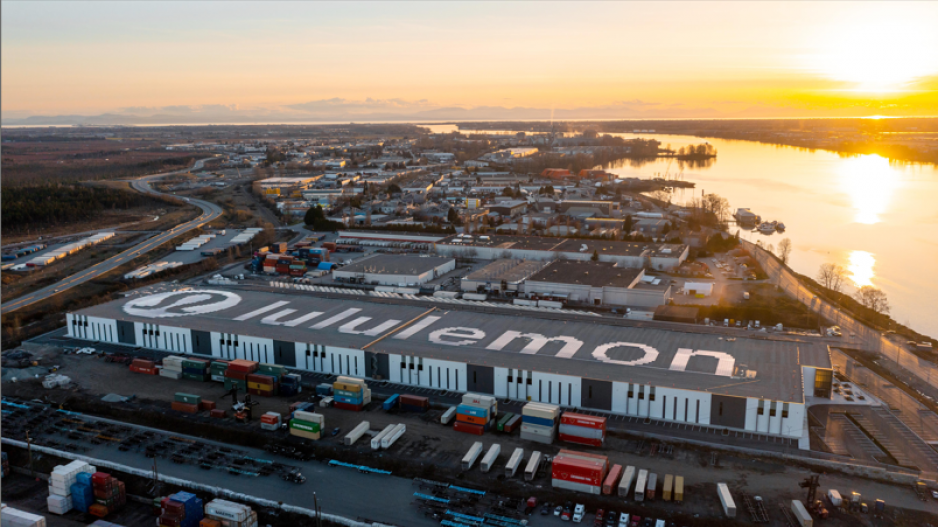Lululemon Athletica Inc.’s (Nasdaq:LULU) logo can now be seen from the skies thanks to an array of solar panels installed on top of a B.C. warehouse, arranged to mimic the tenant’s branding.
The panel display represents the largest solar energy system in the province, according to Wesgroup Properties, which built both the warehouse and panel system for the West Coast fashion giant.
The system’s 2,592 panels are located on top of a warehouse in Delta, B.C., the developer revealed Thursday (May 25).
The total equals 1.2 megawatts, and together the array is equivalent to the energy used by nearly 100 B.C. homes annually or the same amount of energy needed for a Tesla Model 3 to travel 6.6 million kilometres.
The 69,246 square-foot solar array is the maximum size allowed under BC Hydro’s net-metering requirements, according to Wesgroup.
“With the increasing electrification of cars, space heating and industrial activities, the demand for electricity is going to rise substantially in the coming years, making it even more important for buildings to produce their own power and even be net contributors to the electrical grid,” Malcolm Shield, Wesgroup’s vice-president of sustainability, said in a press release.
“Climate change means we’re heading into a future very different from the past, and the ability to have distributed power generation through projects like this will be critical in having an electrical system that works for tenants and can support the move away from fossil fuels.”
The project builds on other sustainable initiatives from the company such as achieving Built Green or LEED Gold standards in 1,200 homes and Wesgroup’s thermal energy utility company, River District Energy (RDE).
RDE was created for the 130-acre master-planned River District community located on the Vancouver side of the Fraser River. The community and utility company will service 18,000 residents by using waste heat from Metro Vancouver’s waste-to-energy facility to provide space heat and hot water, according to Wesgroup.
For developers who hope to include solar energy systems in future projects, Shield recommended conceptualizing the system in the early stages of the project. This will reduce costs, maximize benefits and simplify the project delivery, he said.
Updated May 25, 2023, to reflect that the entire array equals 1.2 megawatts.




